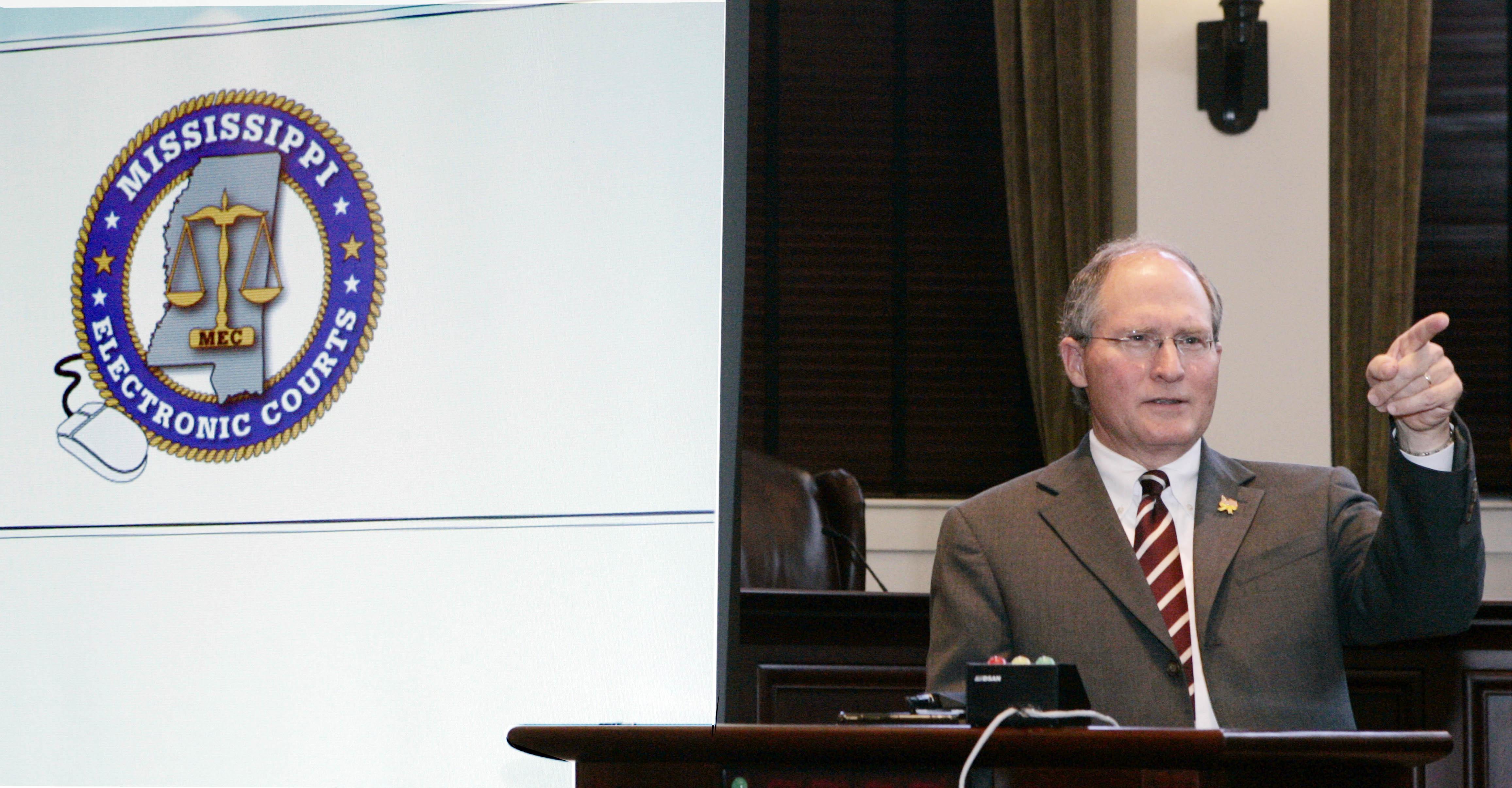It took nearly two decades to fully bring Mississippi’s court system into the digital age. The project started with a pilot program in Madison County back in 2008, and just getting electronic filing in place for that first court was not easy.
Mississippi obtained the rights to modify the source code and software for the federal court system’s electronic filing system thanks to then-U.S. Sen. Thad Cochran, who used his power as chairman of the Senate Appropriations Committee to add that deal to the judiciary’s budget bill. Mississippi remains the only state in the country with the privilege.
Arthur Johnston, now clerk for the U.S. District Court for the Southern District of Mississippi, was chancery clerk in Madison County at the time. He served on a commission established by then-Mississippi Supreme Court Chief Justice James Smith and chaired by then-Presiding Justice Bill Waller Jr. to study how to implement electronic filing statewide. Johnston and a team of deputy clerks spent more than a year retrofitting the federal software to work with the types of cases and procedures specific to Mississippi’s chancery courts.
“We'd make notes about what worked and what didn't work, and then that afternoon, a programmer would come in and tinker with the programming language,” Johnston said. “The next day, we'd spend a couple of hours testing the problems that we'd written on the white board the day before to see if the programmers had fixed it. We did this day after day after day on top of our regular work in Madison County.”
The first electronic court filing in Mississippi was submitted on May 1, 2008. The system gradually expanded to other courts, but progress remained slow for years, as participation in MEC was initially voluntary. That changed in 2020 when state lawmakers passed legislation requiring all trial courts to come online.
Now, 188 court systems across Mississippi's 82 counties are on MEC. Nathan Evans, who leads the MEC division at the Mississippi Supreme Court, said clerks no longer have to worry about losing records, attorneys no longer need to file documents in person, and the public can more easily access court records online.
Evans, who joined MEC in 2015 and became division director in 2018, has worked on the full rollout for more than a decade. He said the final push involved migrating decades of data from outdated, locally maintained systems, many of them running on IBM’s AS/400 platform developed in the 1980s, and training staff in each court.
“For whatever reason, they could have different versions of that system, so the tables might have an additional column or a column out of place on each table, and that would throw all of our scripts off that worked in the last court that we would have to rewrite,” Evans said. “That's a one to two month process per court.”
On top of the technical issues, Evans said getting court clerks on board with the migration was sometimes a challenge. Some were eager to modernize, while others were hesitant, but he said that most came to appreciate the benefits after seeing the system in action.
“Give them a couple weeks, couple months as they’re doing it, and a vast majority of the time they would tell us, ‘Why didn’t we do this sooner?’” Evans said.
The COVID-19 pandemic also underscored MEC’s value. Courts already on the system were able to continue operations with minimal disruption, even while courthouses were physically closed. Johnston noted that MEC courts, like their federal counterparts, "were completely open" during that time.
The full implementation brings new capabilities for judges, attorneys and the public. Judges can now view case filings statewide in real time. Attorneys can file motions electronically at any time of day. And the public can access docket information and, in most cases, court filings, though access to certain sensitive cases, such as child custody proceedings, remains restricted online to protect privacy.
With the rollout complete, Evans said his team can now shift focus to building out new features and tools. That includes a more robust judgment roll system, planned updates to reflect judicial redistricting, and eventually allowing attorneys to initiate civil cases online, just like they can in the federal system.
“It’s like we’ve built the foundation of our house,” Evans said. “Now we need to build out the inside, like put in the kitchen, put in a bathroom, make it better, make it more efficient.”
Evans was awarded the Mississippi Supreme Court’s Chief Justice Award last week in recognition of his leadership in implementing MEC statewide. Ironically, Johnston received the same award in 2008 for his role in building the state’s first e-filing system in Madison County. Evans credited his 13-member staff for seeing that 17-year-project finally realized.
“None of this would happen without them,” Evans said. “They go above and beyond and they make my job easy.”





